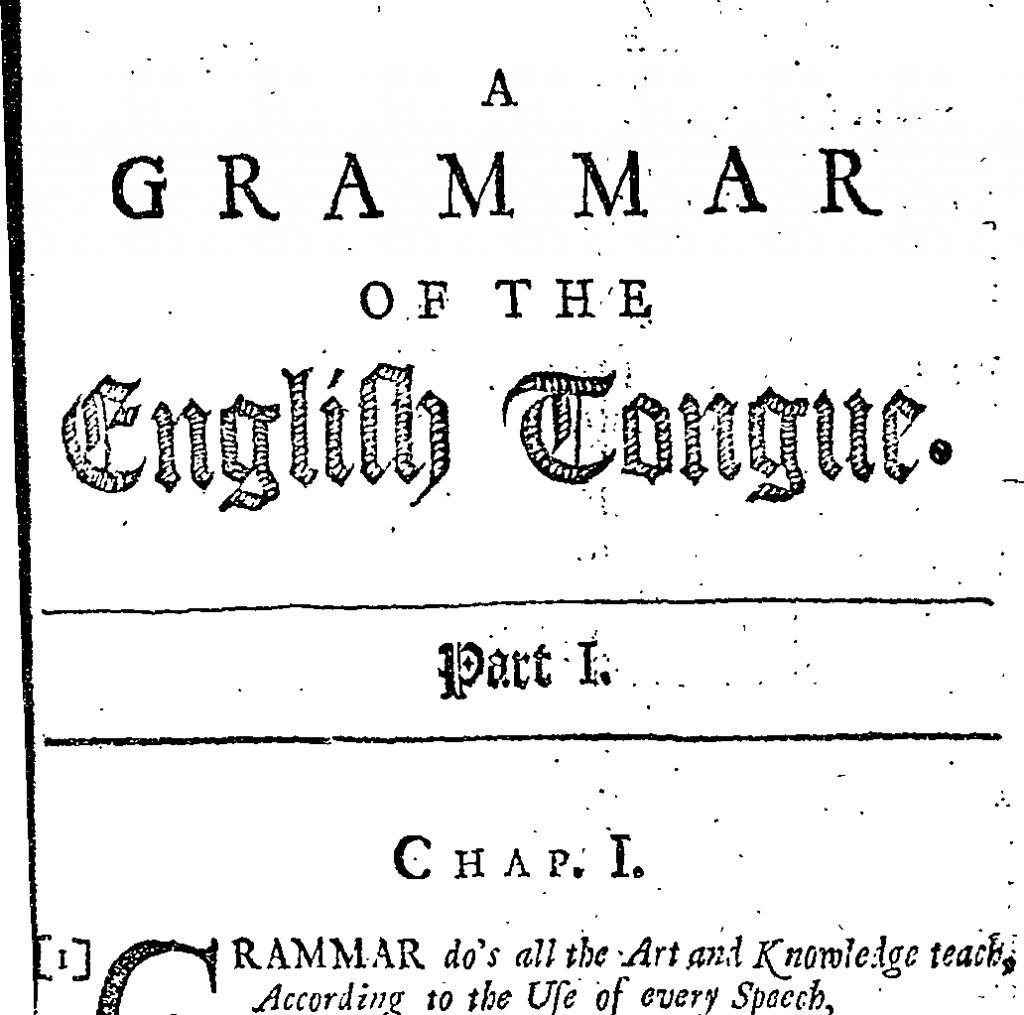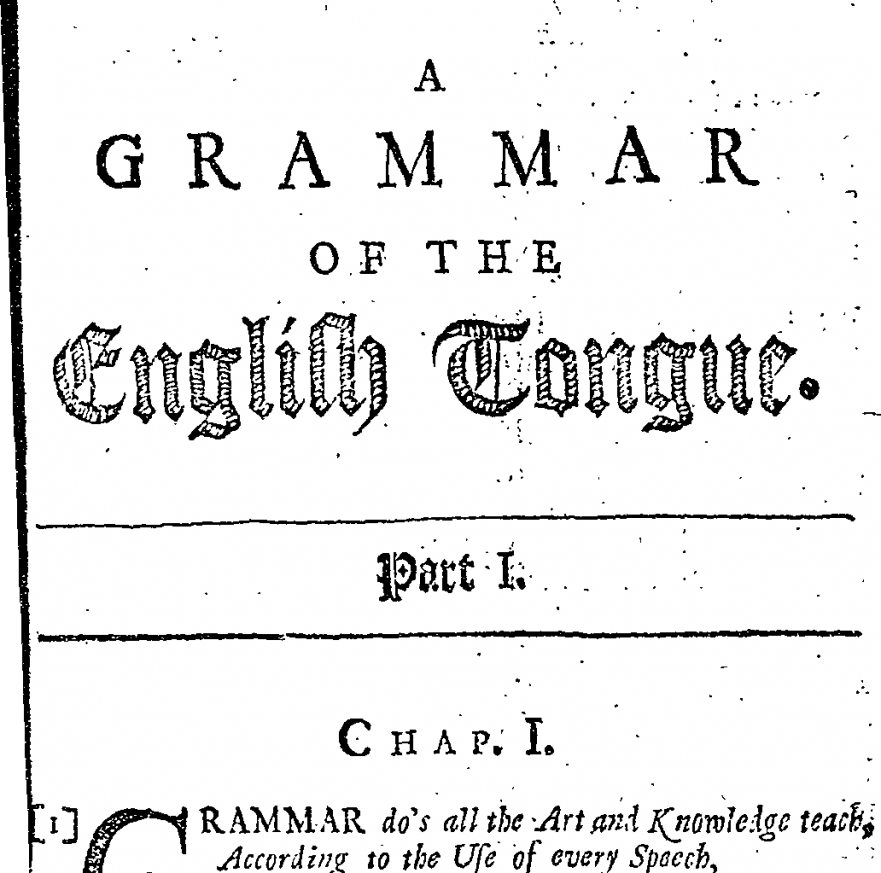
Grammar – knowledge or usage of the preferred or prescribed forms in speaking or writing.
Did you know there is a National Grammar Day? I didn’t. At least not until I stumbled across that fact today on the internet. Martha Brockenbrough, founder of the Society for the Promotion of Good Grammar, designated National Grammar Day in 2008. So it’s a great day for all those who take the use of proper grammar seriously to come out of the woodwork. Not literally. Figuratively will do. Being in the woodwork would be very difficult literally. Much less coming out of it. But let’s all give a shout out for the proper use of our language. Or maybe text something. That might truly prove whether you are ready to join the grammar police force. Can you type “u” for you or thru for through or tho for though? Do you notice when signs have errors? Misspelled words? The lack of punctuation?
“My spelling is Wobbly. It’s good spelling but it Wobbles, and the letters get in the wrong places.”― Winnie-the-Pooh
Winnie-the-Pooh is not the only one who has wobbly spelling these days. You can find some of those wobbly words with letters in the wrong place everywhere. Maybe even here at times although I cringe when it happens. Typos happen. Depending on spell check to catch errors can lead to mess-ups since they’re, there, their are all correctly spelled even if they aren’t correctly used. Those words and your, you’re or it’s and its seem to be confusing for many. And let’s not even think about to, too, and two. Grammar difficulties can go much deeper than those sound alike words.
Following are a few examples that highlight improper grammar usage first published in the New York Times in 1979 by William Safire and later published in Fumblerules: A Lighthearted Guide to Grammar and Good Usage
* Avoid run-on sentences they are hard to read.
* Don’t use no double negatives.
* Reserve the apostrophe for it’s proper use and omit it when its not needed.
* Verbs has to agree with their subjects.
* No sentence fragments.
* Proofread carefully to see if you any words out.
* Avoid commas, that are not necessary.
* If you reread your work, you will find on rereading that a great deal of repetition can be avoided by rereading and editing.
* A writer must not shift your point of view.
* Eschew dialect, irregardless.
* And don’t start a sentence with a conjunction.
* Don’t overuse exclamation marks!!!
* Writing carefully, dangling participles must be avoided.
* If any word is improper at the end of a sentence, a linking verb is.
* Steer clear of incorrect forms of verbs that have snuck in the language.
* Take the bull by the hand and avoid mixed metaphors.
* Never, ever use repetitive redundancies.
* Everyone should be careful to use a singular pronoun with singular nouns in their writing.
* If I’ve told you once, I’ve told you a thousand times, resist hyperbole.
* Don’t string too many prepositional phrases together unless you are walking through the valley of the shadow of death.
* Last but not least, avoid cliches like the plague; seek viable alternatives.”
I’ve broken many grammar rules in my writing. Sentence fragments abound in my stories. And those sentences sometimes need to start with a conjunction or end with a preposition. Here’s Winston Churchill’s advice on that. “Ending a sentence with a preposition is something up with which I will not put.”
So, maybe the grammar police will be searching out the wrongs in my books which leads me to Dorothy Parker’s quote here. “If you have any young friends who aspire to become writers, the second greatest favor you can do them is to present them with copies of The Elements of Style. The first greatest, of course, is to shoot them now, while they’re happy.”
Oh, I did get a copy of The Elements of Style years ago. Maybe I should reread it. Plus, I’m still a happy writer – most of the time. I’d prefer no shooting please.
So what grammar miscues drive you crazy? Examples from my books accepted. 🙂


Comments 6
Writers who use misuse floor and ground. Example: “she fell to the floor” when the character is outside.
Author
That same sort of mistake was in something I read recently where the character fell to the ground but they were inside a house. It made me wonder if I’d forgotten to note that the character had gone outside. But no, I think they called the floor the ground. So I’m with you on this one, Christine.
Another misuse of prepositions in written text is”onto” when clearly in its context should be “on to”. This makes me shudder. Incorrectly saying “unthaw” when clearly the correct word is “thaw”, and “irregardless” instead of “regardless” also make me shake my head. I just want to ask the person who says “unthaw” what they are intending.
Author
I guess if we’re unthawing something, we’re freezing it again?? That onto and into and on to and in to are some of the difficult ones. You have to really stop and think when you’re writing to decide which one you want to put in your sentence, Maria. And I’ve been known to say “irregardless” regardless of knowing it’s wrong. Sigh. I’m pretty country in my talking.
Lie/lay. That one drives me crazy. In so many books, I find the word “lay” used when “lie” is obviously the correct word. It also drives me crazy to see “laid” instead of “lay” or “lain,” which are the past and past perfect tense of “lie.”
Another one that drives me nuts is the use of “alright.” “All right” is two words, not one with an “l” left out.
And last but not least… “set and sit.”
Oh wait, I also can’t stand to see “myself” when the writer or speaker obviously means “me” or “I.” I am the only one who can do something to myself.
I see examples of all of these in the books I read.
Those are not all my pet peeves regarding grammar but I’ll stop now.
Author
You’re so right about all those, E. The set and sit and lie and lay are ones you see used incorrectly all the time. Somehow people missed the grammar lessons on those and on many others. You set the table before you sit yourself down in a chair beside the table. Oops, hope I didn’t use that yourself wrong. 🙂